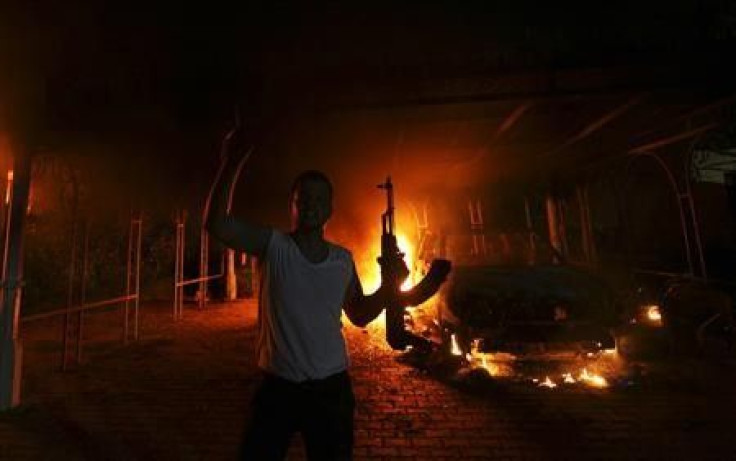US, Libya Officials Offer Differing Accounts Of Deadly Benghazi Attack

The U.S. and Libya have offered different accounts regarding the attack on the U.S. consulate in Benghazi that left four Americans dead on Sept. 11.
Susan E. Rice, the U.S. ambassador to the United Nations, has told the media the deadly attack was the result of a spontaneous protest over an anti-Muslim video that allegedly depicts Prophet Muhammad as a womanizer and child molester. The demonstration in Benghazi -- claimed the lives of U.S Ambassador to Libya J. Christopher Stevens and three of his aides after the consulate came under fire from rocket-propelled grenades -- occurred after protesters in Egypt stormed the U.S. embassy in Cairo.
"People gathered outside the [consulate], and then it grew very violent, and those with extremist ties joined the fray and came with heavy weapons, which unfortunately are quite common in post-revolutionary Libya, and that then spun out of control," Rice said on the television show "Fox News Sunday."
However, Rice said the U.S. does not see signs that it was a coordinated, premeditated attack.
But after announcing the arrest of 50 suspects connected to the attacks, Mohammed al-Megaryef, the president of the Libyan National Congress, suggested the attacks were connected to foreign extremists from Mali and Algeria who must have organized the event with "affiliates and sympathizers."
"The way these perpetrators acted, and moved ... leaves us with no doubt that this was preplanned, determined, predetermined," al-Megaryef said on CBS News' "Face the Nation" Sunday.
The U.S. is investigating whether terrorist groups may have exploited the public outrage over the video most commonly called "Innocence of Muslims" to trigger an attack long in the works.
Al Qaeda in the Arabian Peninsula claimed the Libya assault was an act of revenge for the killing of the organization's deputy leader, Sheikh Abu Yahya al-Libi, who was killed in a June drone strike.
The demonstrations spread to about 20 countries this week, mostly centering on U.S. embassies or consulates in the Middle East-North Africa region. As of Sunday, at least 14 deaths had been reported in connection with the protests.
© Copyright IBTimes 2024. All rights reserved.











